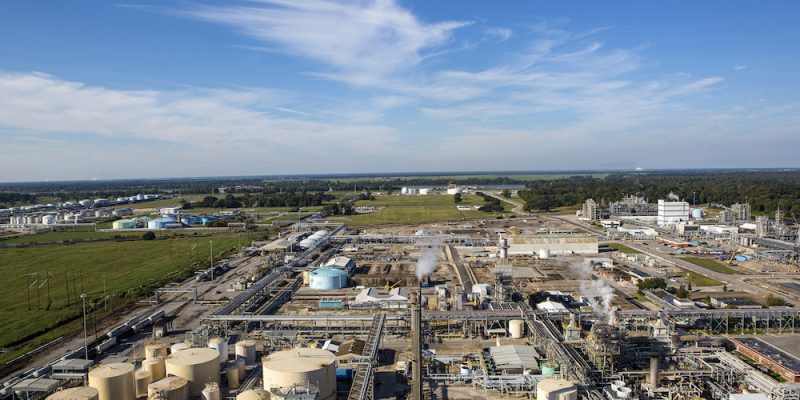A year-end poll by the National Association of Manufacturers (NAM) reveals that the industry is optimistic about its future in 2019. Groups of associations nationwide point to the Tax Cuts and Jobs Act (TCJA) signed by President Donald Trump and his deregulation efforts as a driving force for record-high employment and job creation in the industry.
The TCJA lowered the corporate tax rate to 21 percent from 35 percent. Thousands of companies nationwide directed savings to employee bonuses and other employment benefits, invested in capital expenditures, and hired new employees.
Despite a potential economic slowdown predicted for 2019 and recent stock market declines, nearly 89 percent of the 539 companies surveyed in the fourth quarter of 2018 expressed having a positive outlook for their businesses.
The yearly average for companies holding a positive outlook was 92.4 percent, the highest in the survey’s 20-year history.
“This year was one for the record books, with manufacturers’ average optimism for 2018 hitting an all-time high,” Jay Timmons, president of NAM, said in a statement. Over the next decade, “as many as 2.4 million could go unfilled if we don’t equip more Americans to take on these high-tech, high-paying careers.”
Seventy-one percent of the same group expressed an overall unfavorable business climate in the last quarter of 2016 under former president Barack Obama, compared to 18.5 percent in the last quarter of 2018 under President Trump.
In the next 12 months, companies expect capital investments to increase 2.6 percent, full-time employment to rise 2.2 percent, and wages to jump 2.3 percent, NAM reports.
In addition to federal action, the University of Wisconsin-Madison’s Center for Research on the Wisconsin Economy found that more than 42,000 jobs were created between 2013 and 2016 because of the state’s Manufacturing and Agriculture Credit. The center’s study reported that more than 88 percent of tax credit recipients were small businesses, with incomes of less than $1 million.
Scott Manley, senior vice president of Government Affairs for Wisconsin Manufacturers & Commerce, said the opposite action – raising taxes and eliminating job-creating tax credits – is a “recipe for economic disaster and failure.”
Chris Rochester, a spokesman for the Wisconsin-based McIver Institute, told Watchdog.org that any tax increases on the state level seemed unlikely because of the Republican majority-held legislature. Governor-elect Tony Evers’ “stated goal of raising taxes on the state’s manufacturers and farmers by eliminating the manufacturing and agriculture tax credit appears dead on arrival,” Rochester added.
More than 68 percent of respondents in the NAM poll listed attracting qualified workers as a top concern. A concern, Mark Denzler, president and CEO of the Illinois Manufacturer’s Association, expressed to Watchdog.org.
“Nationally, there are more than 500,000 unfilled manufacturing jobs and Illinois companies will need to hire 20,000 workers every year just to replace an aging workforce,” Denzler said. “Illinois manufacturers can compete with anyone in the world on a level playing field. Manufacturing creates wealth in this nation and employs 570,00 women and men in good, middle-class jobs in Illinois.”
The IMA hopes to work with Governor-elect J.B. Pritzker and members of the incoming state Legislature, Denzler said, especially on the issues of tax reform, regulatory relief, a capital infrastructure bill, and workforce development to further grow Illinois manufacturing jobs and investment.
In Louisiana, the Louisiana Association of Business and Industry (LABI) conducted a statewide survey through its Louisiana Free Enterprise Institute in December 2018 which found that while nearly 70 percent of respondents said they think the U.S. economy has improved over the past two years, only half think Louisiana’s economy has similarly improved.
“Louisiana has clearly benefited from federal reforms over the last year, but the national picture helps mask critical problems here at home,” Stephen Waguespack, president and CEO of LABI, told Watchdog.org. “We must soon address these policy challenges in a smart, collaborative way or run the risk of being economically exposed should the national economy slow down in 2019.”
Waguespack credits Louisiana’s lack of economic growth “due in large part to anti-business policies in Baton Rouge. At the federal level, taxes and regulations were slashed, and the market responded in a positive way. The opposite seems to be happening in Louisiana.”
Waguespack points to the current administration policies he says created “unnecessary volatility in economic development programs,” also noting that the state’s unpredictable tax climate has negatively impacted manufacturers, service companies and inventory-dependent businesses of all sizes. The LABI has also led the charge against the administration’s “predatory legal climate,” which has increased costs for businesses and taxpayers.
This article was first published on Watchdog.org.
Advertisement
Advertisement

